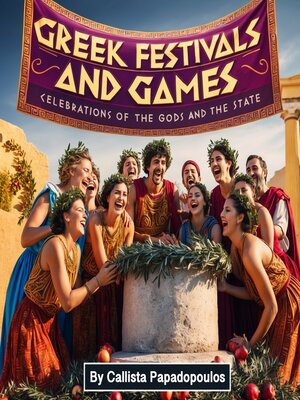Greek Festivals and Games
audiobook (Unabridged) ∣ Celebrations of the Gods and the State
By Callista Papadopoulos

Sign up to save your library
With an OverDrive account, you can save your favorite libraries for at-a-glance information about availability. Find out more about OverDrive accounts.
Find this title in Libby, the library reading app by OverDrive.



Search for a digital library with this title
Title found at these libraries:
| Library Name | Distance |
|---|---|
| Loading... |
This audiobook is narrated by a digital voice.
The rhythm of ancient Greek life was defined by an elaborate calendar of religious festivals that punctuated the year with celebrations honoring the gods, strengthening community bonds, and providing opportunities for artistic expression, athletic competition, and cultural exchange that transcended the political boundaries separating the scattered city-states of the Mediterranean world. These festivals represented far more than mere entertainment or religious observance; they constituted the fundamental framework through which Greek communities organized their social, economic, and spiritual lives while creating shared experiences that reinforced cultural identity and collective values across the entire Greek world.
The origins of Greek festival culture can be traced to the earliest periods of Greek civilization, when agricultural communities developed seasonal celebrations that marked crucial moments in the farming year while honoring the deities believed to control fertility, weather, and harvest success. These early festivals combined practical functions related to agricultural coordination and food distribution with religious ceremonies that sought divine favor for continued prosperity, creating patterns of community celebration that would evolve into the elaborate festival systems that characterized classical Greek culture.







